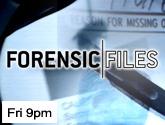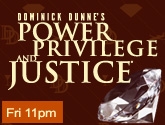True Crime Tale and Archetypal Rendering of our World Situation
 |
| Movie Poster: Zodiac |
That's okay, though because this movie is based Graysmith's perspective, even if he's not present in all the scenes. That means it's his interpretation, not necessarily the truth, and thus for Zodiac buffs, despite the impression given that the case is closed, the game is still afoot.
Graysmith was nevertheless a pathfinder. We can credit his relentless obsession for giving the Zodiac case its status today as one of the most renowned serial killer stories of this century; if not for him, we might know little more about it than a paragraph or two in an encyclopedia of serial murder. While his book does not necessarily admit to problems with some of the witnesses and clues (see the Crime Library Zodiac story for details), he was ahead of his time in keeping a cold case hot.
The attitude among reporters during the 1970s, as described by Downey's Paul Avery, was that once the Zodiac passed from the headlines, he was old news and thus no news. Graysmith spent a decade proving how wrong-headed this attitude was. Not only did he produce a soundly researched story, he affirmed what we now know, that all evidence should be handled with care because new ideas and technology can offer new ways to solve an older case. (On a side note: Much has been made of the fact that investigators have three envelopes from Zodiac letters from which they might derive a full DNA profile, yet they first announced this in 2002. It doesn't take that long to get a DNA reading, even from an overworked lab, so why haven't we yet heard the results? Let's hope this production will apply some pressure.)
Despite the film's meticulous recapturing of past decades and gumshoe police work, there's an underlying flaw: Graysmith himself is never developed. We have no idea what drove his obsession. It's not enough to say he was an eagle scout who aspired to do good. To gain resolution, he let everything go — his family, his job, and even his reputation. Would an eagle scout do that? He wasn't a driven reporter or detective; he was a cartoonist, so what in his life fueled this need to know the identity of the man responsible for these crimes? The film offers no answer. In the end, perhaps it doesn't really matter, because there are larger issues at stake.
One of the creepiest things about Zodiac was how he tried to manipulate a city with terroristic threats, close in tone to the Beltway Snipers on I-95 or the Axeman of New Orleans. The film shows how difficult it was for key personnel to make decisions about responding to his demands and whims. Although the tale is set in the sixties, the dilemma is just as real for us today, but on a global scale. We, too, need to know how to respond when we're told that unless we do this or that, many people will die. On one level, Zodiac is just a true crime tale, while on another it's an archetypal rendering of our world situation. The continuous rain, the darkly lit scenes, and the vexing ambiguity of clues underscore how difficult it can be to see the face of the bad guys we need to identify to survive. After viewing this film, we should rightly come away with a pervasive sense of unease.
Previous Page
The Zodiac Killer Feature Story

 default
default increase
increase decrease
decrease
 email
email print
print

